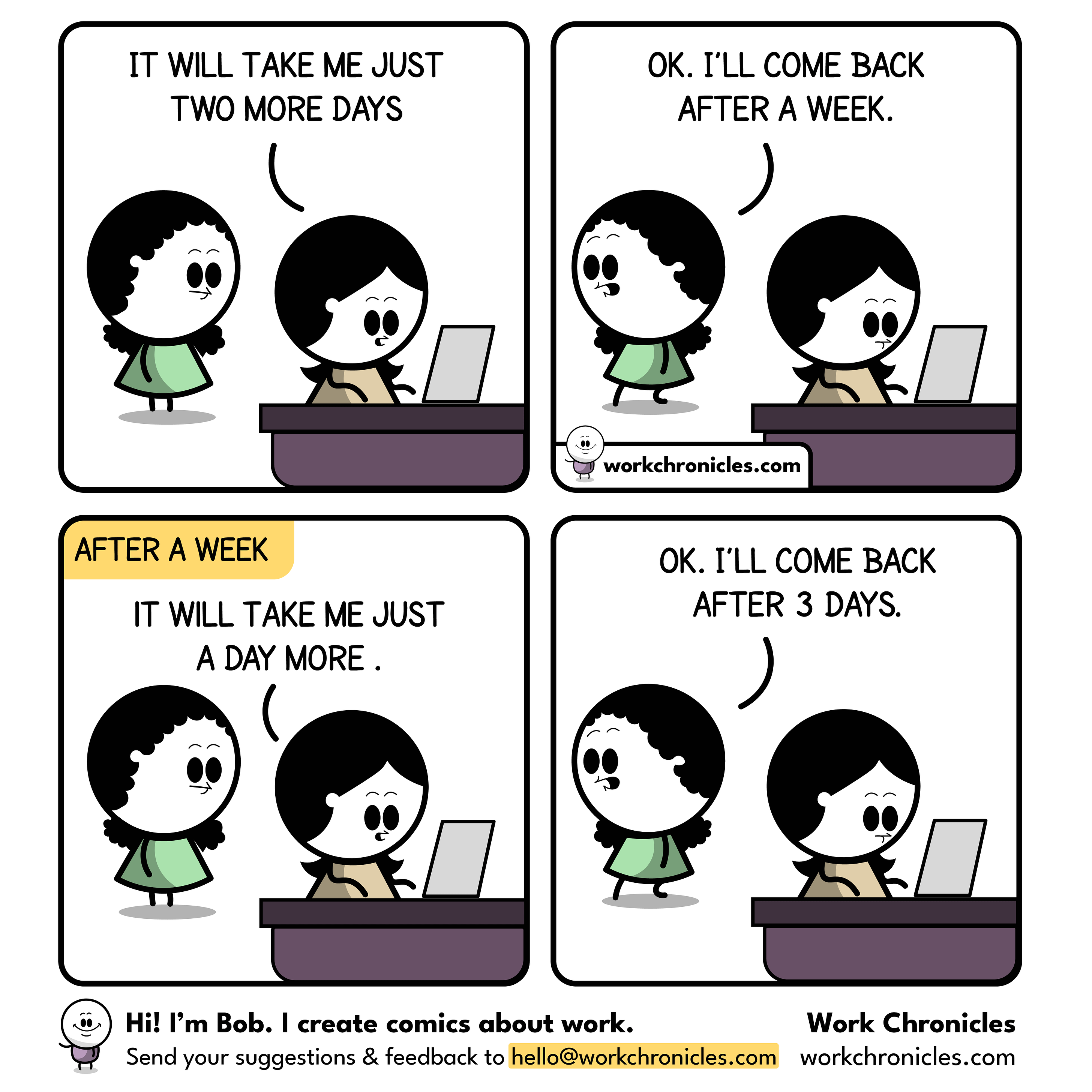Time Periods

From Star Trek to Hofstadter’s Law, estimates are always a conundrum. There are lots of articles about it on the web, but here’s Ron Jeffries about it and it’s a really good place to start.
To me, the problem is not the estimates themselves, or the idea that you’re trying to measure something that is neither precisely or accurately measurable, but in what happens to after you make the estimate. Or to put it more bluntly, the problem is that very often inaccurate, imprecise estimates are taken as promises. When that happens, everyone is going to end up with some level of unhappiness.
If you’ve been reading these entries for any length of time, it’s probably obvious that I think it’s important to add value as soon as possible. And that you need to add the most value you can. The question is, how do you know what the most valuable thing to do is.
In fact, it’s not just the most valuable, it’s adding the most value, for some set of resources, over a certain amount of time, and knowing that for a given set of resources, every choice to do something is also a choice to NOT do a bunch of other things. That’s a good thing. Focus is good, and tends to get you to value sooner.
However, to maximize, or even go in the direction of maximization, you need to compare resources spent on all of the possible options. And since you need to do it before you’ve done most of the possible things, you can’t know how many resources it will take. Instead, you have to estimate it. Then you can do comparisons and make choices.
Sometimes, there really are dates you need to hit. My go-to example for that is delivering games for the holidays. Even today, with online games, internet delivery, and mobile gaming, in the US, if your product isn’t available by Thanksgiving, you’re going to lose out on a lot of sales. You NEED to work within that constraint. You can go a long way by sequencing work and doing the things that need to be done first, first, and leaving the rest for later.
But what if you’re making tradeoffs? Thing A is critical, things B, C, and D are nice to have and individually that’s the importance order. But together, C and D are more important than B and C. Should you do C and D first then? Only if you believe that you can get them both done. And to know that, you need an estimate.
Which brings us to my recommendation(s). Never give a precise time estimate. Instead, the precision of your estimate should be a function of the time period estimated. Something like no more accurate than ½ the time period. If you think the right unit of time for your estimate is days, the accuracy of your estimate should be +/- ½ day. If your estimate is 3 years, then it’s 3 years, +/- 6 months. And, reserve the right to change the estimate AND the precision as you learn more about the problem.
That’s not what the #noestimates zealots want, but it is as little estimation as you can get away with.
